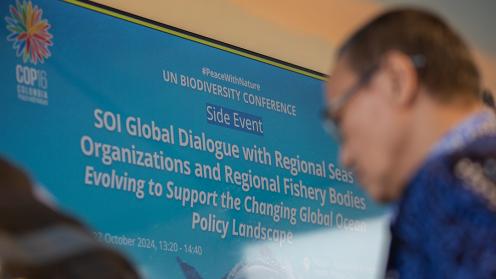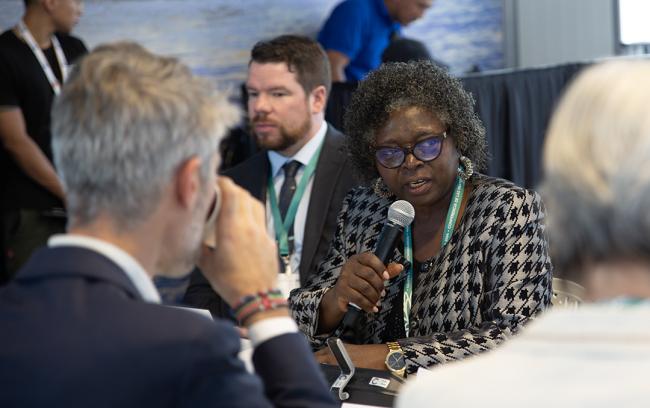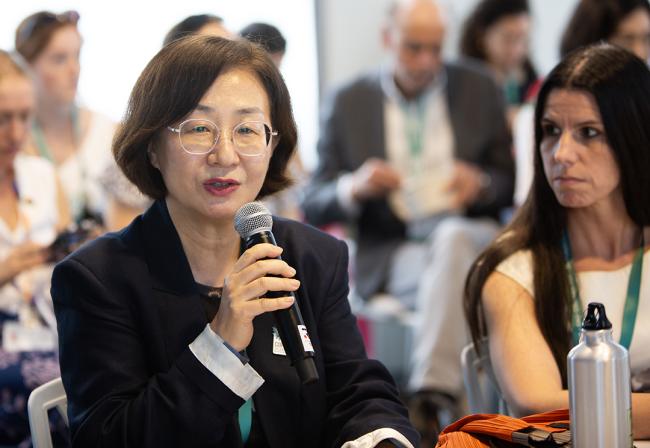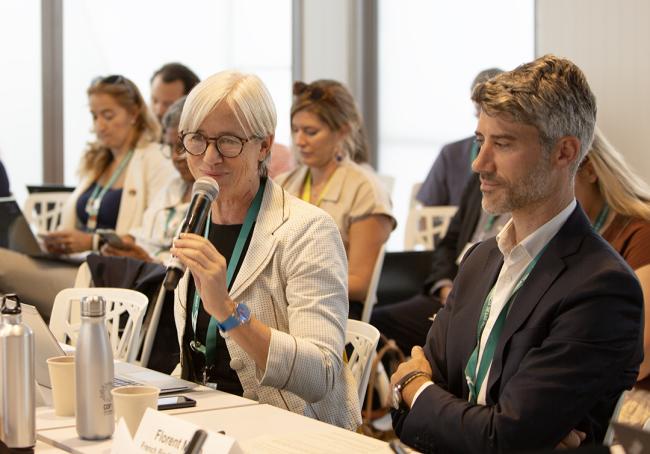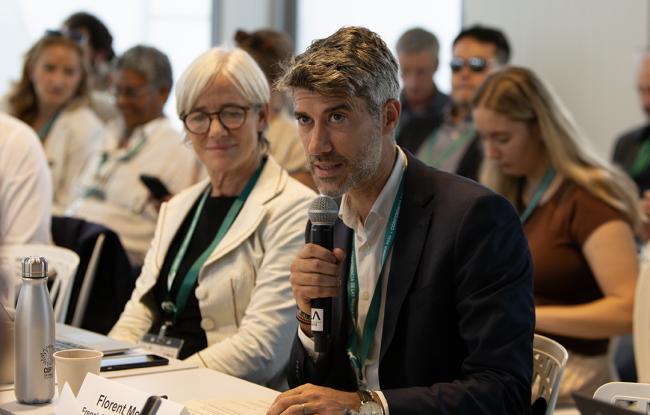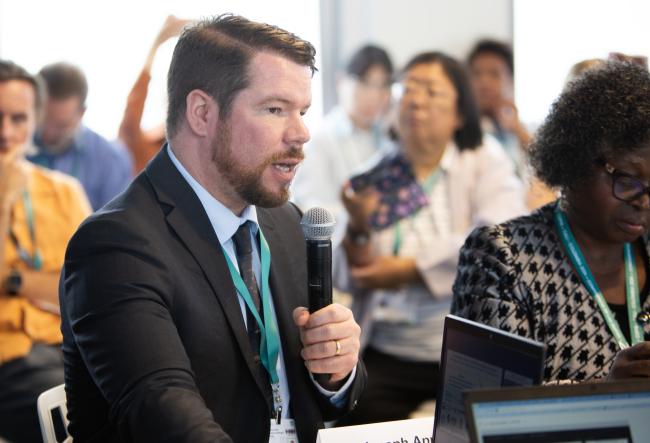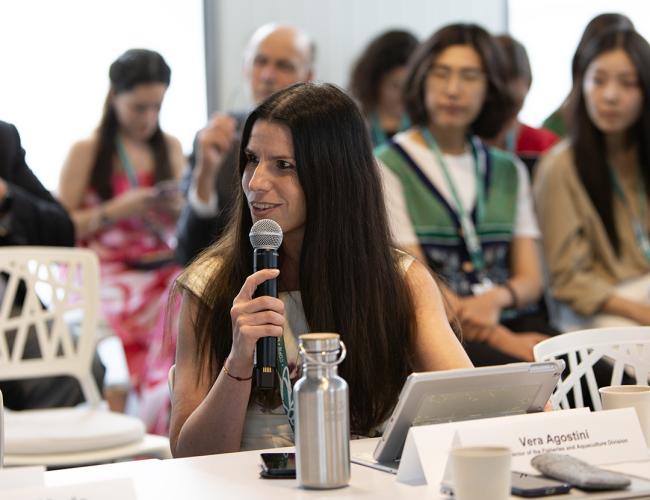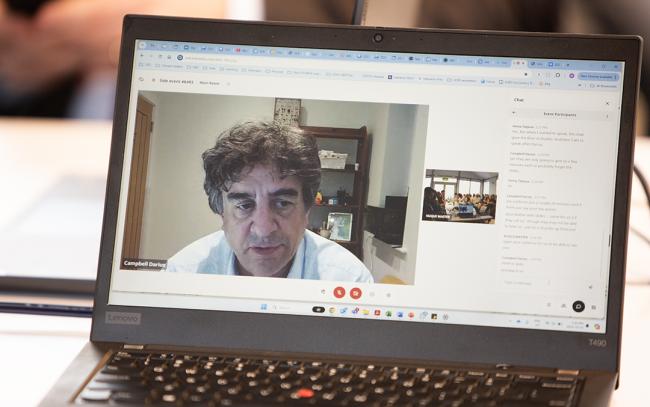About
This event featured reports on progress made through the Sustainable Ocean Initiative (SOI) Global Dialogue, launched in 2016, and highlighted the importance of cooperation and collaboration among regional bodies for achieving global goals and targets.
Recent developments in ocean governance, including adoption of the Kunming-Montreal Global Biodiversity Framework (GBF), the Biodiversity Beyond National Jurisdiction (BBNJ) Agreement, and ongoing negotiations for a plastics treaty, suggest that ocean governance is undergoing a big—and crucial—change.
Regional organizations, especially in the context of the Ocean, have traditionally operated in silos, separate and distinct from global and national organizations. However, with momentum for a paradigm shift surrounding ocean governance, regional cooperation is increasingly seen as vital for achieving global goals and targets. The SOI Global Dialogue presents an ideal platform for stakeholders to come together and explore the role they can play in achieving the synergies needed across various sectors.
In her welcoming address, Prudence Tangham Galega, Cameroon, underscored the significance of these dialogues for realizing ambitious goals to strengthen governance of the Ocean, as set out in the GBF and BBNJ Agreement.
Jihyun Lee, Director of the Division for Science, Society and Sustainable Futures, CBD Secretariat, stressed the importance of building synergies across the broad and cross-cutting networks and tapestry of collective actions. She explained that in order to propel the relevant actors to work towards common goals, initiatives like the SOI Global Dialogue are crucial for building trust and mutual support.
Vera Agostini, Deputy Director, Fisheries and Aquaculture Division, Food and Agriculture Organisation of the UN (FAO), highlighted the pioneering work of the Dialogue as the only global mechanism to cover key global and regional intergovernmental governance bodies dealing with the marine environment, biodiversity, and fisheries. She said that because fisheries and aquaculture typically fall outside of environmental authorities that oversee biodiversity issues, the SOI Global Dialogue is critical to ensure that these issues are also considered within the fisheries and aquaculture sector.
Florent Merle, French Biodiversity Agency, commended the significant and consistent work completed under the dialogue, drawing special attention to the development of knowledge and expertise across broader marine issues. He said this work would contribute greatly towards achieving targets under the GBF.
Pandian Krishnan, Director, Bay of Bengal (BoB) Programme, presented on supporting implementation of the GBF and BBNJ Agreement in the BoB region. He highlighted regional cooperation platforms, including: the BOB-GBF Working Group; the BoB Initiative for Multi-Sectoral Technical and Economic Cooperation (BIMSTEC)-India Marine Research Network; and the BoB Stock Assessment Network. He mentioned a regional dialogue promoting cooperation through NBSAPs held in India in 2023, and BoB regional workshops held in August 2024 on building capacity to implement the BBNJ Agreement and on the conservation of marine mammals and turtles.
Joseph Appiott, CBD Secretariat, presented on the impacts and achievements of the SOI, which was initially launched to recognize the important role that regional organizations play in the implementation of global goals. He highlighted how the Global Dialogue enables regional organizations and bodies to share experiences from their respective processes, including collaborative approaches in decision making, and exploring ways for measuring progress towards global goals and targets. He shared that the SOI Global Dialogue has proven to be an important platform for discussion and will continue to provide space for global and regional bodies to coordinate in the pursuit of common goals.
Christopher Corbin, Cartagena Convention Secretariat and Caribbean Environment Programme (CEP), shared experiences from his region, noting that through the SOI Global Dialogue, there is now a greater level of coherence among different bodies and an effort to align the different regional seas programmes.
Charlotte Salpin, UN Division for Ocean Affairs and the Law of the Sea (DOALOS), presented on the linkages and opportunities for the SOI Global Dialogue under the BBNJ Agreement. She highlighted its potential role in contributing to key issues, such as proposals for area-based management tools in areas beyond national jurisdiction.
Tatjana Hema, Coordinator, Mediterranean Action Plan (MAP) Barcelona Convention, provided updates and insights from, and cooperation in, the Mediterranean region. She highlighted a Memorandum of Understanding between UN Environment Programme (UNEP)/MAP and FAO/General Fisheries Commission for the Mediterranean (GFCM), signed in 2012, which has resulted in a shared vision between the Mediterranean fisheries sector and marine biodiversity conservation. She mentioned other cooperative mechanisms, including: the Strategic Action Programme for the Conservation of Biological Diversity in the Mediterranean Region (SAPBIO); and MedBycatch, which aims to reduce the of incidental catch of vulnerable species in fishing gear in the region. She said benefits for the region of the SOI Global Dialogue include, among others: translating global GBF goals into strategies tailored to the Mediterranean region; and promoting cooperation on essential tools such as area-based management, environmental impact assessments, and connectivity across boundaries.
Darius Campbell, Secretary, North-East Atlantic Fisheries Commission (NEAFC), discussed the SOI Global Dialogue’s role in strengthening the existing collaboration between NEAFC and the Convention for the Protection of the Marine Environment of the North-East Atlantic (OSPAR Convention). He noted that this had resulted in concrete work, such as cooperation relating to the use of area-based management tools. He also praised the platform as being essential in bringing about real engagement among stakeholders.
Ensuing discussions focused on concrete ways that regional organizations can contribute to the achievement of the global goals and targets, and what mechanisms can be introduced to support this. Work on the global review of progress towards the global biodiversity targets, National Biodiversity Strategies and Action Plans (NBSAPs), and using existing information and processes were all considered good starting points. The SOI was identified as an important platform through which relevant stakeholders can come together to tease out how such progress can be achieved.
Organizers: CBD, Ministry of Oceans and Fisheries of the Republic of Korea, France’s Ministry of Ecological Transition, and France’s Office of Biodiversity
Contact: Joseph Appiott, CBD Secretariat joseph.appiott@un.org
For more information: https://www.cbd.int/soi
To receive free coverage of global environmental events delivered to your inbox, subscribe to the ENB Update newsletter.
All ENB photos are free to use with attribution. For this side event, please use: Photo by IISD/ENB | Angeles Estrada Vigil
